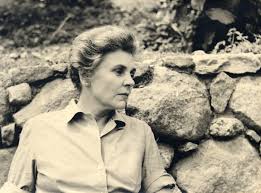The genesis of the song “One Art” comes from reading Elizabeth Bishop’s beautiful poem of the same name. I’ve read it in a few different classes, but I remember it most recently from a poetry seminar I took at Columbia with Michael Golston. The poem stands out to me in modern poetry because it’s so easily understood, so cheeky, so humorous, so unassuming and colloquial in contrast to the density of your Eliots and Pounds; yet, it wields equal depth and power as any works of those masters. Here’s the poem in full:
The art of losing isn’t hard to master;
so many things seem filled with the intent
To be lost that their loss is no disaster.
Lose something every day. Accept the fluster
of lost door keys, the hour badly spent.
The art of losing isn’t hard to master.
Then practice losing farther, losing faster:
places, and names, and where it was you meant
to travel. None of these will bring disaster.
I lost my mother’s watch. And look! My last, or
Next-to-last, of three loved houses went.
The art of losing isn’t hard to master.
I lost two cities, lovely ones. And, vaster,
some realms I owned, two rivers, a continent.
I miss them, but it wasn’t a disaster.
– Even losing you (the joking voice, a gesture
I love) I shan’t have lied. It’s evident
The art of losing’s not too hard to master
Though it may look like (Write it!) like disaster.
 (Elizabeth Bishop)
(Elizabeth Bishop)
I remember that as I read the poem at Columbia it felt almost impossibly sad. The nostalgia was overwhelming. The essence of nostalgia, I thought as I read the poem, is the recognition that return is impossible. That is, as much as you may long to re-experience an innocent time or to rekindle a lost romance or to see a deceased friend once more – it’s an impossibility from which there is no return. This poem begs us to teach ourselves the acceptance of this impossibility but it also rails against the unfairness of such a world that tortures us with such loss but doesn’t prepare us how to cope.
I often get asked why I write such sad songs. For those who know me, I’m generally a happy-go-lucky person who likes a joke and a froyo more than just about anything in the world. My answer is two-fold: 1) I’m a deeply nostalgic person in ways very few people see; and moreso 2) melancholic feelings are just so much more interesting than pleasure and glee. Whereas we only have one major scale (okay, sure, this is debatable, leave me alone, music theory nerds), we need at least three to navigate minor keys, and this feels analogous to the depths and varieties of feelings melancholy can bring. There’s so much texture to depression, anger, and angst whereas joy seems somehow uniform to me.
It’s not hard to see how I got from the poem to the lyric – they share many concepts, words, and phrases in common. I remember that I wrote this tune in Montreux, Switzerland, shortly after the solo jazz piano competition there. I walked around that city, taking in its beauty, yet at the same time a bit lonely and lost (the competition had been the focus of so many aspirations and preparations, after all), and started mentally piecing together the lyric. I believe that this was the first song I wrote with this group (Lucas, Nancy, and myself) specifically in mind.
A couple musical details – this is an odd song in that it starts and ends in two different keys. It’s not something I set out to do, but I think I could make the argument that ending in D minor instead of A minor, the listener does feel slightly “lost”…in a new key never to return. This also helped to decide on the form of the tune, which includes three statements of the melody rather than any solos. Since the tune really “starts over” after each repetition, it seemed unnecessary and odd to try to create improvisations that might span two, three, or four repetitions. Each statement is self-contained, and hopefully the texture of loss develops and spreads from one statement to the next.
Download the chart for “One Art” for free here.
Download a free EP of music from the video series here.
One Art
I’d like to learn how to lose
By losing something new every day.
I’ll start with my keys and proceed to my shoes,
and soon it will all slip away.
I’ll reject my fortune
and regret my fame
Without choosing who
I’ll forget my friends’ names and faces.
I was so good at losing you
You left me without one final word.
But nothing I’ve tried has helped to erase
the memory of that last look on your face:
You smiled through tears in the winter’s frost
perhaps you knew that without you I’m lost.